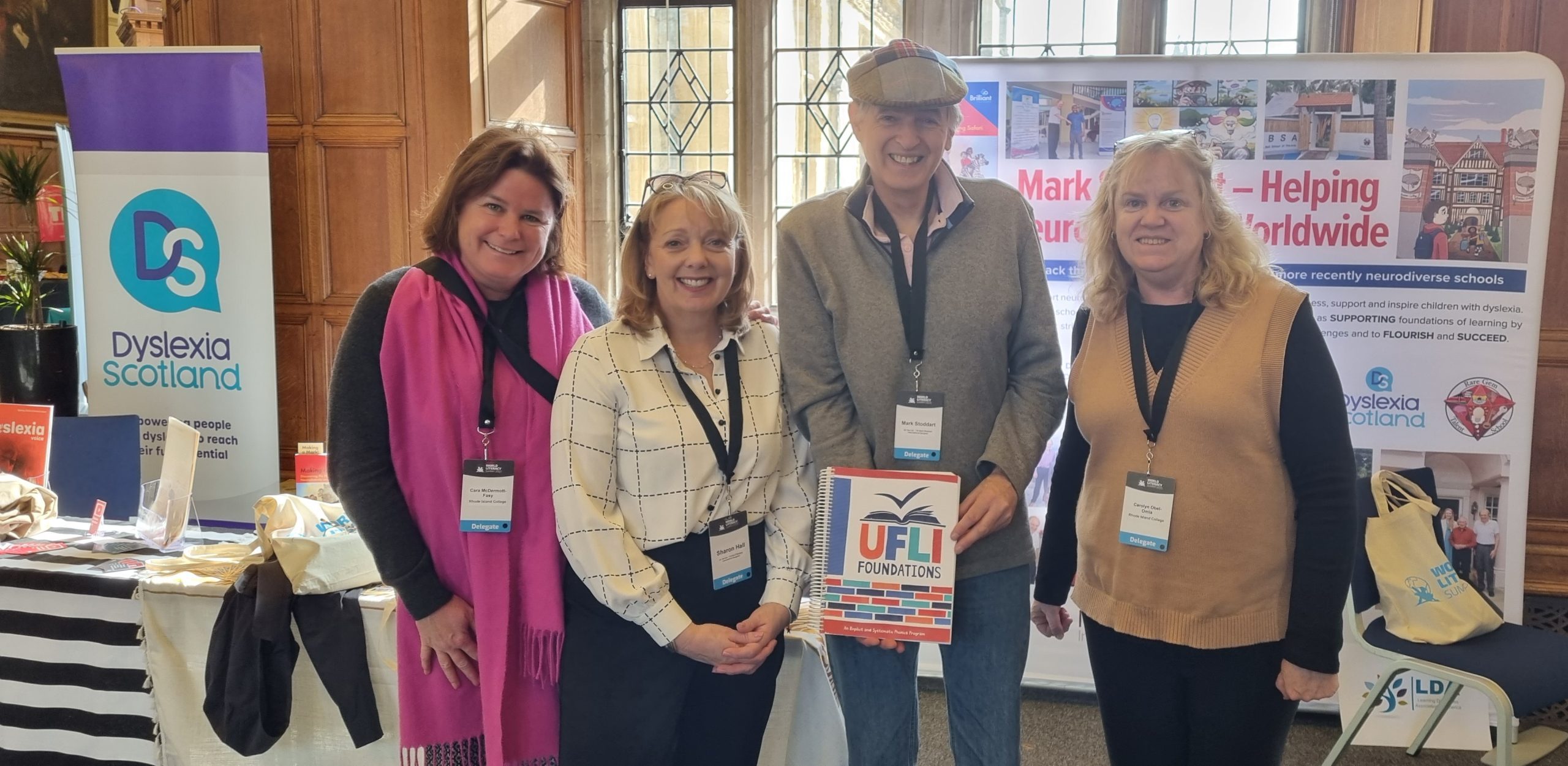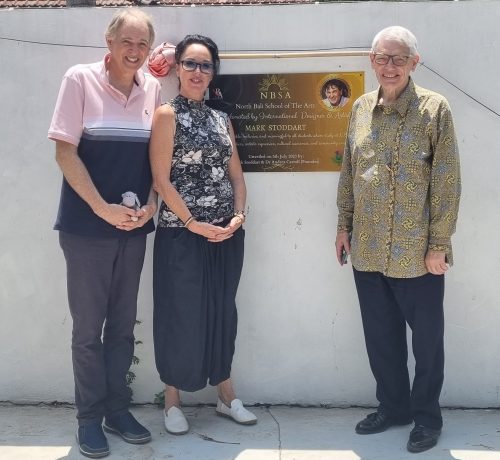
Changemakers without borders
by Janey Ball, a guest contributor
Being identified with dyslexia was a launchpad for two types of journey for Mark: a voyage of self discovery, and an adventure across the world
In an interconnected world, Scottish artist and designer Mark Stoddart has taken a different kind of journey – one fuelled not by leisure, but by literacy. A lifelong dyslexia advocate, Mark has traversed continents to champion neurodiversity, bringing both empathy and action to the global stage.
His recent travels reflect a powerful mission: from Singapore’s Dyslexia Association to Orlando’s Learning Disabilities Association of America conference, to Oxford’s World Literacy Summit and communities in Indonesia and Kenya. Each destination deepened his understanding and support for neurodivergent learners.
Identified with dyslexia himself, Mark’s personal experience drives his advocacy. His diagnosis became the lens through which he saw the world differently – and the springboard for change. At home in Scotland, Mark supports causes like Dyslexia Scotland, Race Against Dementia and Rotary Scotland, but believes strongly in global responsibility: “If we don’t help disadvantaged communities in their own countries, the consequences reach our own doorsteps.”

International advocacy
In Bali, Mark funded the eco-friendly North Bali School of the Arts (NBSA), designed to serve neurodivergent students while working towards carbon neutrality. A return visit in October confirmed its life-changing impact. As a Rotarian and member of the Rotary Club of World Disability Advocacy, Mark also addressed the Rotary Club of Bali Action, urging Rotary’s 1.4 million members to champion neurodiversity. At the Scottish Parliament, alongside Rotary International President Gordon McInally, he helped launch a fundraiser featuring his sculpted Apollo 11 table – now on permanent display.
In Singapore, Mark met with the Dyslexia Association of Singapore, impressed by its structured, science-backed, and compassionate approach. He presented his book Making a Mark!, sparking new conversations about literacy innovation across borders.
In Orlando, Mark joined experts at the Learning Disabilities Association of America conference, highlighting that dyslexia is a global issue needing locally grounded, culturally fluent solutions. Back in Africa, his funding helped establish a neurodiverse school in Kenya for children with dyslexia, ADHD, autism, and more. Facing overwhelming demand, he’s now fundraising to expand the school with a second floor and has provided teacher training resources.
In the UK, Mark continues his momentum. He spoke at the Liverpool Dyslexia and Neurodiversity Conference, was invited to the University of Chester, and had a presence at the British Dyslexia Association conference and the Dyslexia Show in Birmingham. He also presented at Dumfries House, home of The King’s Foundation, which shares his commitment to education and sustainability.
At the World Literacy Summit in Oxford, Mark extended an invitation to teacher-trainer Sharon Hall of Dyslexia Scotland, emphasising that literacy must include the right to read differently. Across continents, Mark’s message resonates: that every child, regardless of how they learn, deserves the tools and respect to thrive.
“This journey has shown me,” he reflects, “that while the letters may look the same around the world, the stories can always be rewritten.” Mark’s identification didn’t define his limits—it defined his mission: a global declaration that difference is not a deficit.